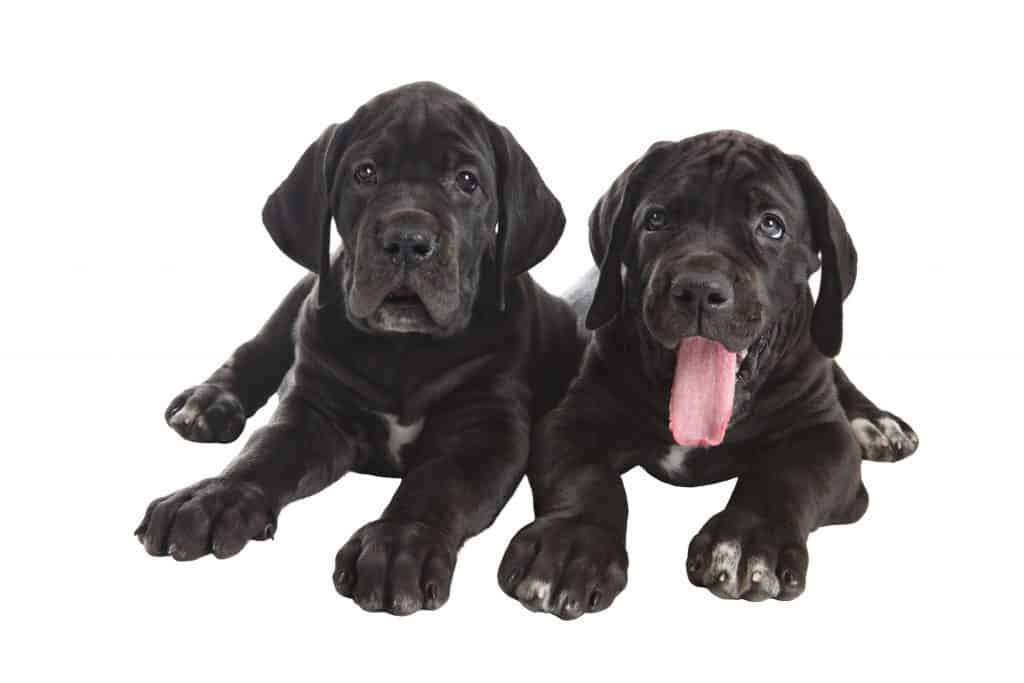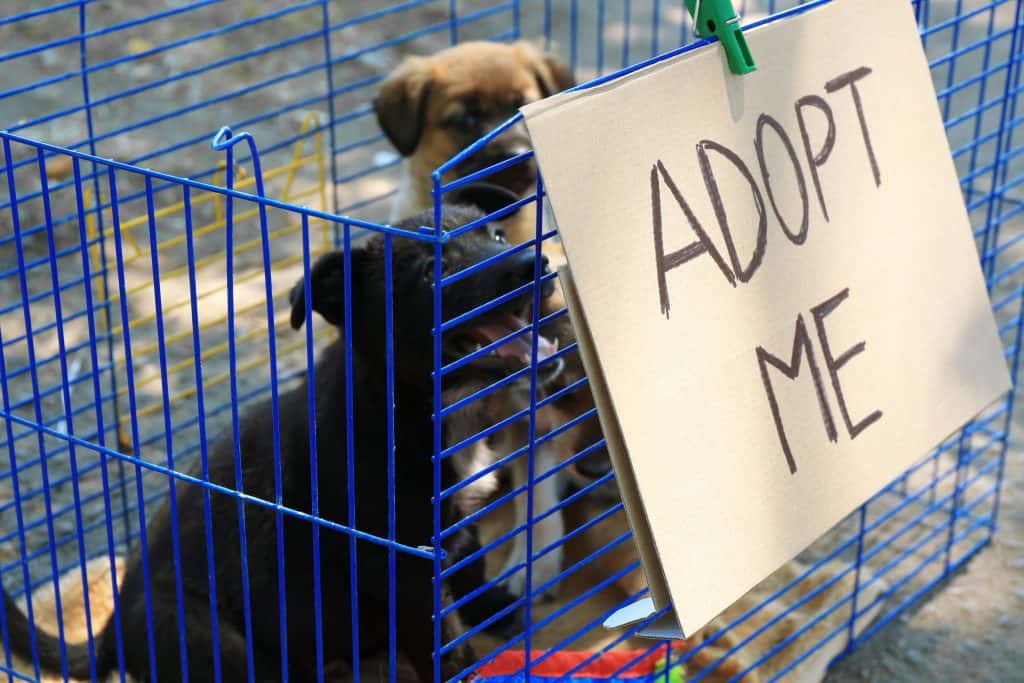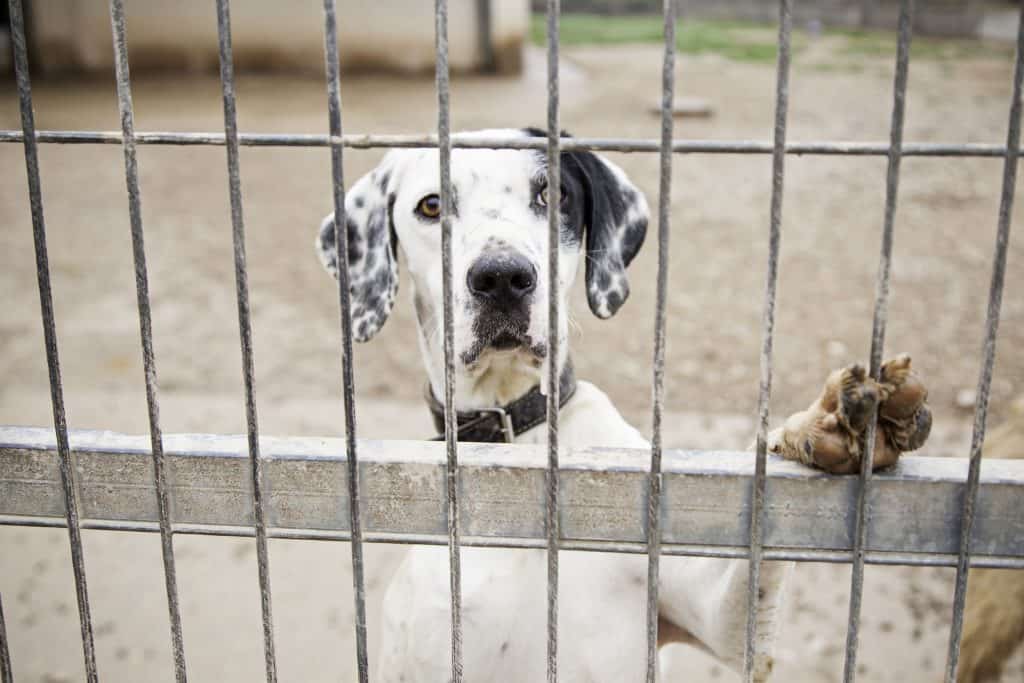How to Find a Great Dane to Buy
When looking for a new pet, you are faced with an abundance of options to choose from. Where do you go? How do you know you’re buying a healthy dog? How do you know your new dog has been treated humanely?
The three most popular means of buying Great Danes are animal shelters, Great Dane breeders, or private adoptions. The Great Dane Club of America has numerous reputable breeders listed in 27 different states across the nation.
There are many different options when buying a Great Dane. Although, some options may be better than others! Here is a guide to how you can find a Great Dane to buy and how you can know that you made the right decision!
Your Best Options
When you make the decision to bring a dog into your home, you are making the decision of gaining a member of your family! Although unfortunately, the decision is not exactly as straightforward as having a child.
When it comes to buying a dog, especially a Great Dane, it is crucial to closely consider where you get him/her from!
There are hundreds, if not thousands of options when buying a dog! Pet shelters, breeders, and private adoptions are the safest and most reputable options for this heavy decision.
Each option has its own possible pros and cons and should be considered carefully.

GDCA Registered Great Dane Breeder
The ideal option when buying a Great Dane is from a Great Dane breeder who is a registered member of the Great Dane Club of America.
Great Danes originated in Europe during the 16th century, bred as hunting companions. They were eventually domesticated and adopted by royalty and the upper class!
Then, during the 1800s, the Great Dane was brought to North America and grew the proud reputation they have today!
In 1889, the Great Dane Club of America (GDCA) was founded by and for Great Dane owners and breeders in order to promote the health and well being of the breed. This organization works consistently with local Great Dane clubs, charities, and breeders across the nation.
The GDCA currently lists more than 80 reputable breeders in their directory with contact information and links to their websites.
Let’s be honest. There are plenty of breeders who advertise through social media or Craigslist. But, Great Danes can be fragile and, when bred, require a breeder who cares for the well being of the animal, not the amount of money they make from you.
Each breeder listed with GDCA is registered with the club and is looked into by the club in order to ensure they are treating their dogs with the proper compassion and care they need.
Breeding a Great Dane requires a lot!
Unfortunately, mostly due to their size, Great Danes are at risk for certain health issues involving their eyes, heart, and joints. In order to ensure a Great Dane lives a happy and healthy life, numerous tests must be conducted by their breeder during their first year of life.
The American Kennel Club (AKC) recommends the following tests be conducted for Great Danes:
- Hip Evaluation
- Ophthalmologist Evaluation
- Thyroid Evaluation
- Cardiac Exam
I’ve personally spoken to several breeders registered with the GDCA and each of them have explained to me how they go above and beyond to confirm the health of each Great Dane they breed.
Many of these breeders have extensive records of the bloodlines of their Great Dane often going back up to 5 generations!
Great Danes are magnificent dogs. If you are considering buying from a breeder, make sure that your new best friend has received the care he/she deserves from a GDCA registered breeder!
If you are still concerned, I’ve compiled a pros and cons list for each of these options.
Pros
- You can become a member of the GDCA as well! Get Involved!
- Breeders have extensive knowledge of Great Dane care and history.
- Many breeders offer health guarantees and can recommend veterinarians for you.
- You have many options for breeders who specialize in certain colors (there are 6) or champion bloodlines.
Cons
- Buying from a breeder can be costly, but you have many options!
Animal Shelters
Breeders are wonderful options! Although, some might not have the money to buy from a breeder. Some might have a feeling inside that tells them they must help!
Most animal shelters care very well for their dogs. Although, a dog needs a home. A dog needs a family!
Approximately 3.3 million dogs are put up for adoption every year in the United States. Many of these dogs in shelters have gone through difficult experiences and are longing for someone they can love, protect, and care for.
Are you that person?
If you are, you better get to calling around! While many dogs are put up for adoptions, Great Danes are fairly uncommon to find in a shelter.
If you do call a few shelters and find a Great Dane available, you will be faced with an adoption fee.
The average adoption fee in the United States is about $250. Although, adoption centers reserve the right to set their own fees based on the age, condition, and type of animal.
Some shelters are simply businesses trying to make money, and some shelters have a genuine mission to rehabilitate their animals to the best people possible.
Many adoption centers offer sales or incentives to get people to take their animals home. Adoption centers might offer:
- Free vaccinations
- Spay/neuter
- Free Medication
- ID Tag
- Pet Food
- Other tests (genetics)
- Pet Insurance trials/discounts
- Follow up Health Exams
Occasionally, shelters will have an initial adoption fee as well as other fees to cover health tests or treatments.
Unfortunately, Great Danes are subject to numerous health risks involving their eyes, heart, and joints. Great Danes are on the more expensive side, so if you do find one in a shelter, be sure to confirm his/her health records with the shelter!
Pros
- You are potentially saving a life!
- An adoption fee is much more cost efficient than buying a Great Dane outright.
- Most animal shelters do proper health tests and keep their dogs healthy and cared for.
- Workers and volunteers at animal shelters give emotional care to the dogs. Therefore, many shelter dogs are friendly and social.
Cons
- Shelter dogs are often put up for adoption due to health problems and require special care.
- Some shelter dogs have gone through traumatic experiences that might affect their personality

Private Adoptions
Buying from a breeder and adopting from a shelter are the most reputable and certain ways to ensure a Great Dane’s health and well being.
Though, these options might not be suitable for you for some reason. Whatever the reason may be, private adoption is your third option.
Classified advertisements for dog sales could be from anyone.
Private adoption is the act of adopting a dog from an owner personally. Sometimes, a young adult might buy a dog and realize it’s too much to care for. Sometimes, a person might be growing old and is unable to care for his/her dog anymore.
Occasionally, a persons’ dog might get pregnant unintentionally (or intentionally), and that person decides to advertise the litter in person or on the internet, which is most common.
Firstly, this is a less recommended option to buy/adopt a Great Dane if you are buying from someone you do not know personally.
As I mentioned, Great Danes require special care when bred. Young pups must be properly fed, cared for, and tested before being sold.
Online advertisements from individuals for their dogs are difficult to determine genuine or not. The term “backyard breeder” is often used to refer to someone who breeds dogs without proper registration, and often without proper facilities, testing, or care for the dogs themselves.
Classified advertisements for dog sales could be from anyone.
If you are considering buying from one of these ads, I advise you to be cautious and to report any suspicious activity or signs of inhumane treatment to the police!
If you are choosing to sell or put your Great Dane up for adoption, be wary that some buyers may have malicious intent or may not be able to financially support a dog.
If you do choose to buy from one of these ads (genuine or not), it is crucial to have your Great Dane pup tested and vaccinated.
Other ads involving the transfer of an adult Great Dane from an individual to another pose much less severe risks.
The main risk of adopting a Great Dane from an individual owner is the unknown reaction of the dog itself. Great Danes often suffer from anxiety and attachment disorder.
A Great Dane who is separated from his/her owner might react negatively and could develop behavior changes involving violent tendencies, sadness, or general anxiety due to a new environment/family.
If you do choose to buy a Great Dane from a classified ad, be sure to confirm with the owner that the dog/dogs are registered, tested, and treated humanely.
Pros
- Buying from a classified ad might be more cost efficient.
- You may be saving a dog who may otherwise be left on the street
Cons
- Buying from a classified ad runs the risk of supporting inhumane treatment (backyard breeders).
- A Great Dane’s personality, if older, could be affected by the change of environment/family.
- A Great Dane’s health could be compromised if untested and sold online.

Options to Avoid
The above three options should be your only options.
Unfortunately, there are other options to buy dogs out there. Here are some places and signs to avoid when buying a Great Dane!
Backyard Breeders
I described backyard breeders when advising you about buying a Great Dane from private owners.
Among the dog breeding community, backyard breeders are more than just frowned upon. Breeding unregistered dogs and not providing proper care not only puts the dogs themselves at risk but can potentially put the entire breed itself at risk.
There are many signs and degrees to backyard breeders. Some might simply breed their two Great Danes (or mix breeds) and sell them on craigslist.
Others might go as far as to advertise themselves as a registered breeder on random websites that sell dogs (which you should avoid in the first place).
When visiting a breeder, registered or not, be sure to ask the following questions:
- May I see the facilities where you breed your dogs?
- May I meet the mother and father?
- May I see the breed registration papers for your litter?
- How long have you been breeding dogs? Did you train under a mentor?
- What genetic testing is done for your dogs?
- Have you ever sold your dogs to pet stores, brokers, or online?
If this breeder answers “no” or anything suspicious, you should not buy from this breeder.
Designer Dogs
Within the last 50 years or so, “designer dogs” have become one of the saddest trends for dog owners.
What once began with occasionally mixed dogs has become an entire industry of dogs selectively bred in order to obtain certain physical characteristics such as size or color.
One of the most dangerous “designer dogs” advertised and sold are “mini” dogs.
A mini dog is most often either a particularly small runt of a litter or a dog who has been bred from two runts so that he/she has been diagnosed with pituitary dwarfism (which is the most likely end result).
Unfortunately, many people are unaware that this occurs and are only aware of an advertisement for a very small and cute dog.
What is not advertised is the health and quality of life for these dogs.
A mini Great Dane will most likely face heart and joint/bone growth problems.
Signs of a mini Great Dane might include:
- Disproportionate head in comparison to the body
- Puppy teeth not falling out
- Disfigured legs, back, or neck
- Genital disfigured – un-descended testicles
- Skin pigment irregularities or scaly/dry skin
There have been several breeds that have been permanently affected to over-breeding and inbreeding throughout history such as the pug, rottweiler, and bull terrier!
All of these dogs are born with breathing problems because their ancestors had been inbred and over-bred under inhumane and unhealthy conditions.
Mixed dogs are not bad things, but advertising them as “designer” dogs is. Be extremely cautious if you are considering a seller of designer or specialty dogs.
Online Pet Stores
Lastly, one of the most dangerous places to buy dogs is the internet.
Often, websites will advertise dogs for sale from “reputable” breeders, but will not provide references, proof of registration, or much information at all about the breeders themselves.
Some websites will offer shipping.
This is a bad sign. Any reputable breeder would not ship a dog to a buyer under any condition. Breeders have told me stories in which they delivered a dog themselves to a buyer hundreds of miles away.
These are the breeders that care.
Avoid online pet stores at all costs. If you don’t know of a breeder who lives near you and you are not willing to go the extra mile, then you should wait.
Where You Buy Your Dog Depends on What You Want
Great Danes are special dogs. No, I don’t mean “specialty” or “designer”, I mean they’re special!
Many Great Dane breeders have been around Great Danes for a long time if not their entire lives. Most of them specialize in breeding certain types of Great Danes based on their color or bloodline.
Great Danes come in the following 7 colors:
- Harlequin
- Blue
- Black
- Merle
- Mantle
- Fawn
- Brindle
Breeders often specialize in one or more of these colors. The price of a Great Dane is affected greatly by these colors!
In addition to color, champion bloodlines are coveted bloodlines of Great Danes and are often bred and sold by breeders as show/champion dogs at much higher prices than normal.
As you search for where you plan to buy/adopt your new best friend, don’t forget to consider what you want!
Know what color and what kind of bloodline you want from your Great Dane.
Although most importantly, remember to assess the dog in person and get a feel for his/her personality. Ask yourself, “Could I love this dog?”
If the answer is yes, then you better hold yourself to it!
